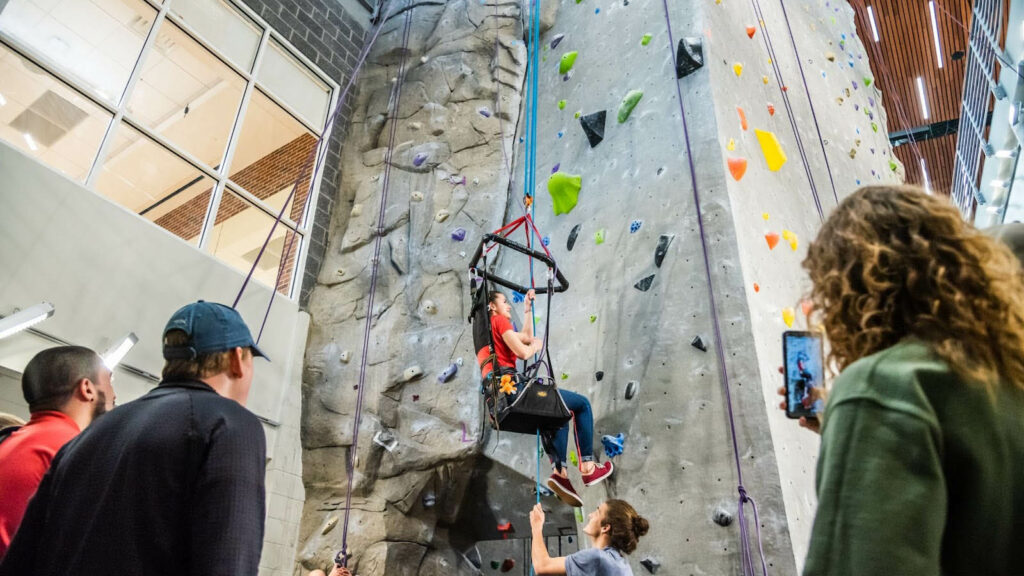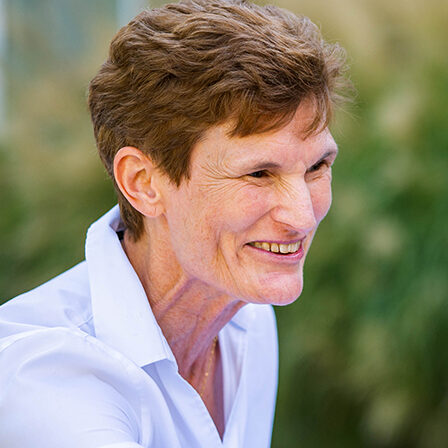Therapeutic Recreation Concentration, B.S.
Overview
Our degree program provides students with requirements necessary to become nationally certified and licensed in North Carolina. Students in this program learn how to assess client needs, develop and implement individualized treatment plans, and document and evaluate client progress and program effectiveness.
Classroom lessons often incorporate service-learning which gives students hands-on experience in the field while serving the local community. Graduates can enter the workforce as licensed recreational therapists in a variety of settings including rehabilitation hospitals, drug and alcohol treatment centers, mental health facilities, assisted living and memory care units, and community inclusion. Students may also use this degree as a pathway to apply for graduate study in Occupational Therapy.
THE STUDENT EXPERIENCE
- TR students take courses such as assessment, clinical procedures, facilitation techniques, abnormal psychology, human development, anatomy/physiology, helping skills, and medical terminology. TR students also can minor in areas such as human development, gerontology, psychology, or sign language.
- In the Accelerated Master’s Program (AMP), students have the opportunity to graduate with a Bachelor of Science AND Master of Science degree, within a five-year time period.
- Students wishing to pursue a master’s in occupational therapy (OT) who are majoring in the TR concentration are advised to take the required prerequisite courses for application to OT programs in North Carolina.
- Students are required to complete a semester-long fieldwork practicum and a semester-long internship, totaling over 600 hours of extensive experience in the field prior to graduation.
- Undergraduate research assistantships are available to support students as they gain valuable research experience by working with faculty members.
- Curriculum provides classes in Facilitation Techniques, Clinical Procedures, Assessments, Program Planning, Serving Underrepresented Populations, Management in Parks & Recreation, and Financing and Budgeting.
- Students consistently earn scholarships and awards from state and national professional associations.
- Service-learning and volunteer opportunities offer hands-on practical experience in a myriad of professional and community settings.
- UNCG/TR’s “Celebrate the Trail to Recovery” program, facilitated by members of the department, offers opportunities for cancer patients to get out on the hiking trail systems of the greater Greensboro area to embrace the restorative properties of nature and build new relationships on the trail to recovery.
- CTR students and the community have access to a 1,000 square feet TR Lab for training and research.
- It is essential for students pursuing careers in Recreational Therapy to be aware of required individual state occupational licensing laws and national certification requirements. The Department of CTR provides students with the necessary preparation to complete a four-year BS degree and meet all eligibility requirements to pass the national certifying exam (www.nctrc.org) and become a licensed Recreational Therapist (www.ncbrtl.org). The CTR program ensures that students are well-equipped to enter the workforce as qualified, licensed professionals. This dual focus on academic training and exam readiness sets our students up for success in both North Carolina and other states where a state license and/or national certification are required.
Undergraduate Minors
- Community Recreation
- Community and Therapeutic Recreation
- Event Planning
- Recreational Therapy
AFTER GRADUATION
CTR graduates in Therapeutic Recreation have secured jobs in:
- Recreation Therapy in Memory Care
- Pediatric Care
- Rehabilitation
- Adapted Sports
- Long Term Care
- Veterans Administration
- Behavioral Health
- Forensic Mental Health Services
Student Voices

